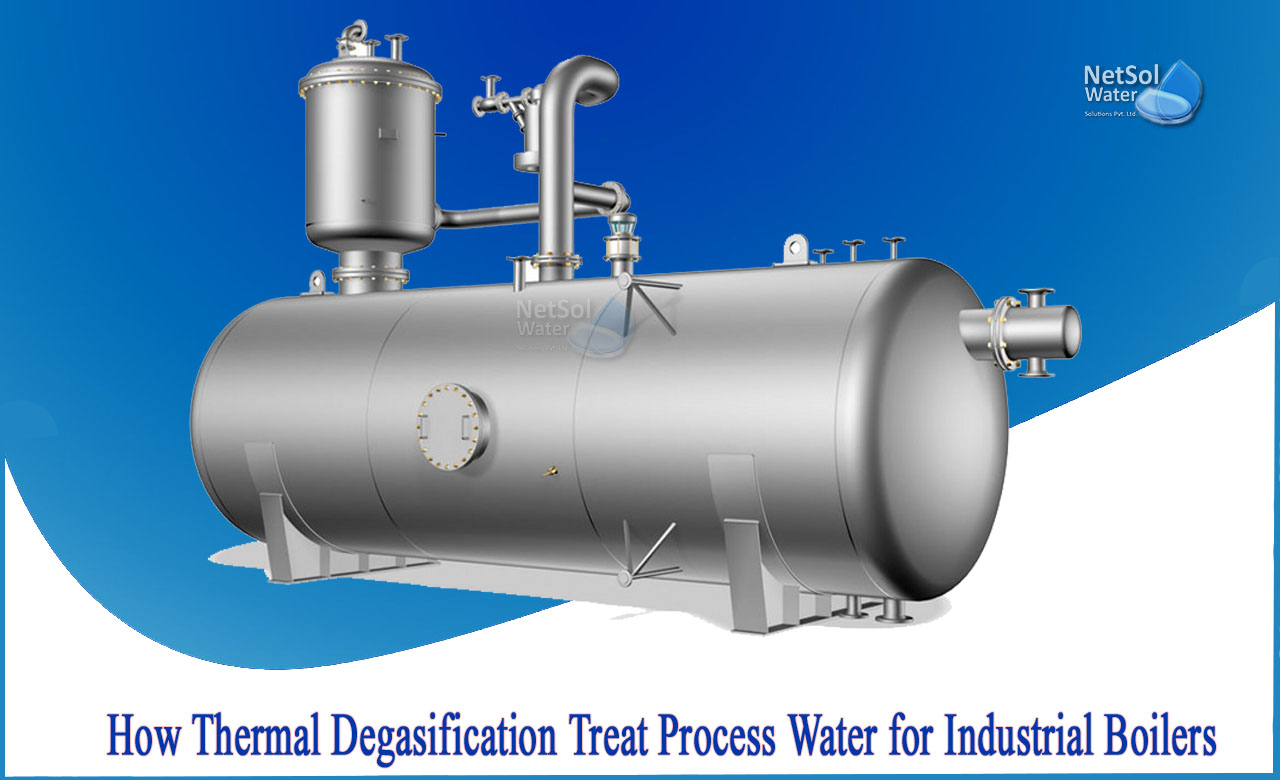How thermal degasification treat process water for industrial boilers?
The saturated vapour must come into intimate touch with the water to be degassed for proper desorption of the gases, which is accomplished by allowing enough time and contact surface.
There are two technologies that have been used in this regard:
1. Degassing the trays
2. Spray Degassing
Both varieties have a lot of experience in industry and the energy sector, which is where most of the boilers that need them are situated.
The minimal amounts of O2 obtained (about 0.65 ppm O2) are higher than those required in the water requirements for boilers.
Spray TD is the most widely used technology due to its ease of manufacture and great efficiency (about 7 ppb O2 is recovered, and CO2 is undetectable by analysis).
There is a combination technique (sprays – trays) that can achieve even lower levels (3 ppb), but the equipment is more sophisticated and expensive, and it is only suitable for the most demanding applications.
The process and scope of thermal degassing
The method of thermal degassing is mostly used to purify boiler feed water in order to comply with the standard, which states that the maximum allowable value of O2 for high pressure boilers is 0.02 ppm (20 ppb).
The existence of O2 in the demineralized water provided to the boilers oxidises the iron in the steel used in their construction, causing pitting, which results in severe corrosion sites and leaks in the circuits and superheaters within.
What is thermal degassing?
Thermal degassing (TD) is a physical method that uses the insolubility of dissolved gases in demineralized water to eliminate them at a temperature of 104°C.Chemical treatment with hydrazine (N2H4), amines, or Na2SO3 is the only alternative treatment capable of attaining the O2 and CO2 levels achieved with TD, but it has a greater operating cost and, in many circumstances, these reagents are hazardous and unstable.
In water, the TD process is based on three fundamental rules that regulate gas solubility.
The mass concentration of a dissolved gas in a liquid is proportional to its partial pressure in the solution at a given temperature, according to Henry's first law.
P = HX = Henry's Law
Where,
“P” denotes the gas's partial pressure.
“H” = Henry's constant, measured in atm. and depending on gas, temperature, and liquid.
“X”is the gas concentration in the liquid, expressed as (mole solute/mole solution).
Another law in question is the one that states, that as the temperature rises, a gas's solubility in water decreases.
To thermally degas water, all that is required is for the container to be kept at the appropriate pressure and temperature for saturating vapour, causing the dissolved gases, such as O2 and CO2, to automatically enter the vapour phase. This is accomplished by raising the container's pressure above atmospheric, or by using a vacuum pump or educator if the pressure is lower.
Description of thermal degasification
A spray type degasifier has two primary components:
a). Dome, which consists of a chamber with demineralized water diffuser sprays and a heater that receives the water spray and makes contact with ascending vapour from the storage tank initially. Pre-degassed water is pumped into a scrubber, which overflows into the storage tank. This allows for more water-to-steam contact, which aids in the elimination of gases from solution to the appropriate levels.
b). Tank for storage: This tank must be raised on a metal framework so that it may be linked to appropriate pump inlets and thus avoid cavitation.
Depending on its size, the tank can be horizontal or vertical; its independent operational range is usually 10-30 minutes. Support cradles will be available if it is horizontal, which is common for degassed water flows > 15 m3/h, with one of them being moveable to relieve tension caused by expansion.To start the device, a heating coil with steam is installed inside the tank.
Netsol Water is Greater Noida-based leading water & wastewater treatment plant manufacturer. We are industry's most demanding company based on client review and work quality. We are known as best commercial RO plant manufacturers, industrial RO plant manufacturer, sewage treatment plant manufacturer, Water Softener Plant Manufacturers and effluent treatment plant manufacturers. Apart from this 24x7 customer support is our USP. Call on +91-9650608473, or write us at enquiry@netsolwater.com for any support, inquiry or product-purchase related query.



